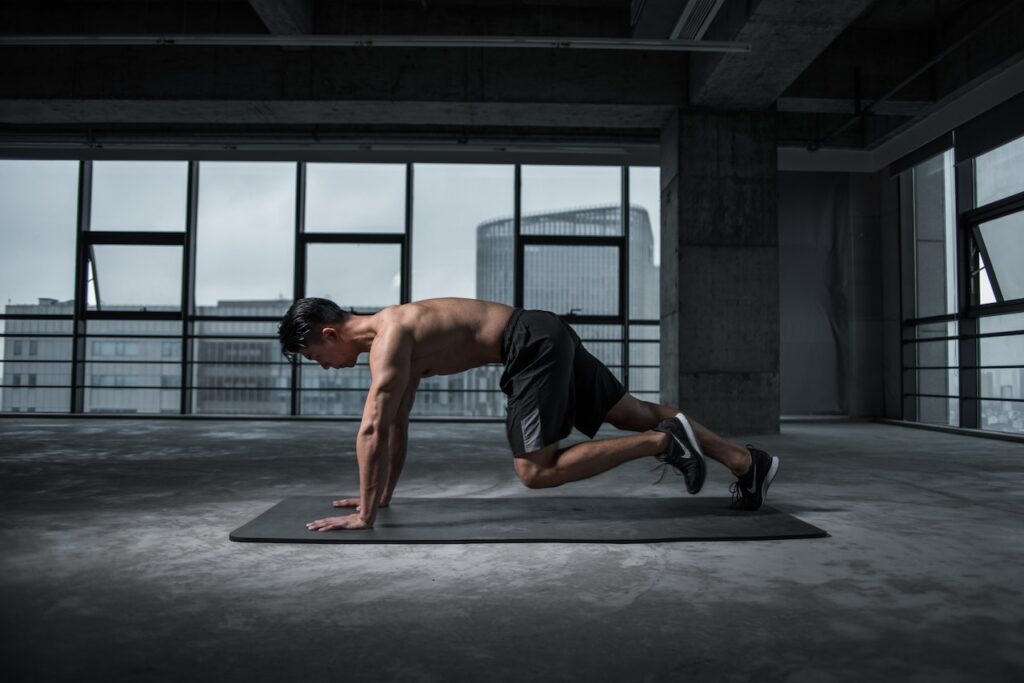Understanding Ergonomics and Its Role in Fitness
Ergonomics, derived from the Greek words ‘ergon’ (work) and ‘nomoi’ (natural laws), is the study of designing and arranging things people use so that they can interact most efficiently and safely. But how does ergonomics fit into the fitness puzzle?
When it comes to fitness, ergonomics takes a front-row seat. It’s about ensuring your home gym setup and the way you exercise conform to your individual needs and capabilities, rather than forcing yourself to adapt to your setup. An ergonomic home gym design enhances injury prevention, increases workout efficiency, and improves exercise form and technique.
Read our article to choose the right home gym equipment for your needs.

Importance of Ergonomic Home Gym Equipment
When setting up your home gym, the selection of equipment is crucial. We’re not just talking about the type of exercises you’re planning to do or your fitness goals. It goes a layer deeper, into the very design of the equipment itself.
Ergonomically designed fitness equipment is sculpted to match the natural curves and movement patterns of the human body. This not only ensures better workouts but also minimizes the risk of injury. From dumbbells designed to fit perfectly into your hands to a weight bench that supports your back correctly, these considerations go a long way in enhancing your muscle strength and overall workout experience.
Ergonomic Tips for Small Home Gym Spaces
Not everyone has the luxury of a vast open space for their home gym. For those working with smaller areas, don’t fret! There are ergonomic, space-saving solutions available that are practical and affordable.
For one, consider multipurpose equipment. A resistance band, for example, is lightweight, compact, and can be used for a variety of strength training exercises. Moreover, wall-mounted equipment such as pull-up bars or foldable squat racks can save you precious floor space.
Next, try mirror placement. While mirrors are excellent for checking your exercise form and technique, they can also create an illusion of more space when strategically placed.
Lastly, opt for portable storage solutions. Consider storing smaller fitness accessories like adjustable dumbbells or kettlebells in portable containers or shelves that can be tucked away after use.
These tips highlight how ergonomics can be incorporated into your home gym setup, even when space is a limiting factor.
No gym equipment? No problem! Get started with bodyweight exercises.
Achieving Cardiovascular Health with Ergonomic Cardio Equipment
Cardio workouts are essential for maintaining cardiovascular health and supporting weight loss. However, the effectiveness of these exercises can be significantly influenced by the ergonomics of your cardio machines. Take treadmills, for instance. An ergonomically designed treadmill will provide a platform that replicates natural running movements and reduces impact on your joints.
Similarly, stationary bikes designed with adjustable seats and handlebars can ensure a comfortable riding position, minimizing strain on your back and knees while maximizing your calorie burn. Remember, the more comfortable and natural your workout feels, the longer and harder you can train, which aids in your weight loss and cardiovascular health journey.
Ergonomics for Strength Training: Equipment Essentials
In the world of strength training, ergonomics is not just a concept, but a requirement. When dealing with weightlifting equipment like barbells, dumbbells, and even resistance bands, ergonomics plays a massive role.
An ergonomically designed dumbbell, for example, has a grip that conforms to your hand’s shape, allowing for a better hold and reducing the risk of injury. For barbells and the squat rack, the height and width should match your body dimensions, ensuring proper form and optimal muscle engagement.
Remember, strength training is about how well you can lift it. Ergonomics ensures that you’re lifting correctly, which, in turn, ensures you’re getting the most out of your workouts.
How Ergonomics Affects Your Workout Routine and Results
You may be wondering, how does ergonomics tie in with workout results? The answer is – in more ways than you might think. An ergonomic home gym setup improves the efficiency and effectiveness of your workouts. It ensures that you’re exercising with proper form, preventing injuries, and targeting the right muscles.
Proper form also means you’re getting the most out of each rep, which translates into better muscle strength, improved cardiovascular health, and more effective weight management. In essence, ergonomics directly impacts the quality of your workouts and, subsequently, your fitness results.
Struggling with consistency? Read our tips on staying motivated.
Conclusion
As you embark on the journey of setting up your home gym, remember to pay close attention to the ergonomics of your setup. Your workout space should not just be a collection of equipment, but a thoughtfully designed environment that caters to your body’s needs and capabilities.
Approach your home gym setup as you would any fitness goal – with careful planning, dedication, and a clear understanding of the principles you’re applying, in this case, ergonomics. This way, you’ll create a safe, efficient, and rewarding workout space that is truly personalized to you.
